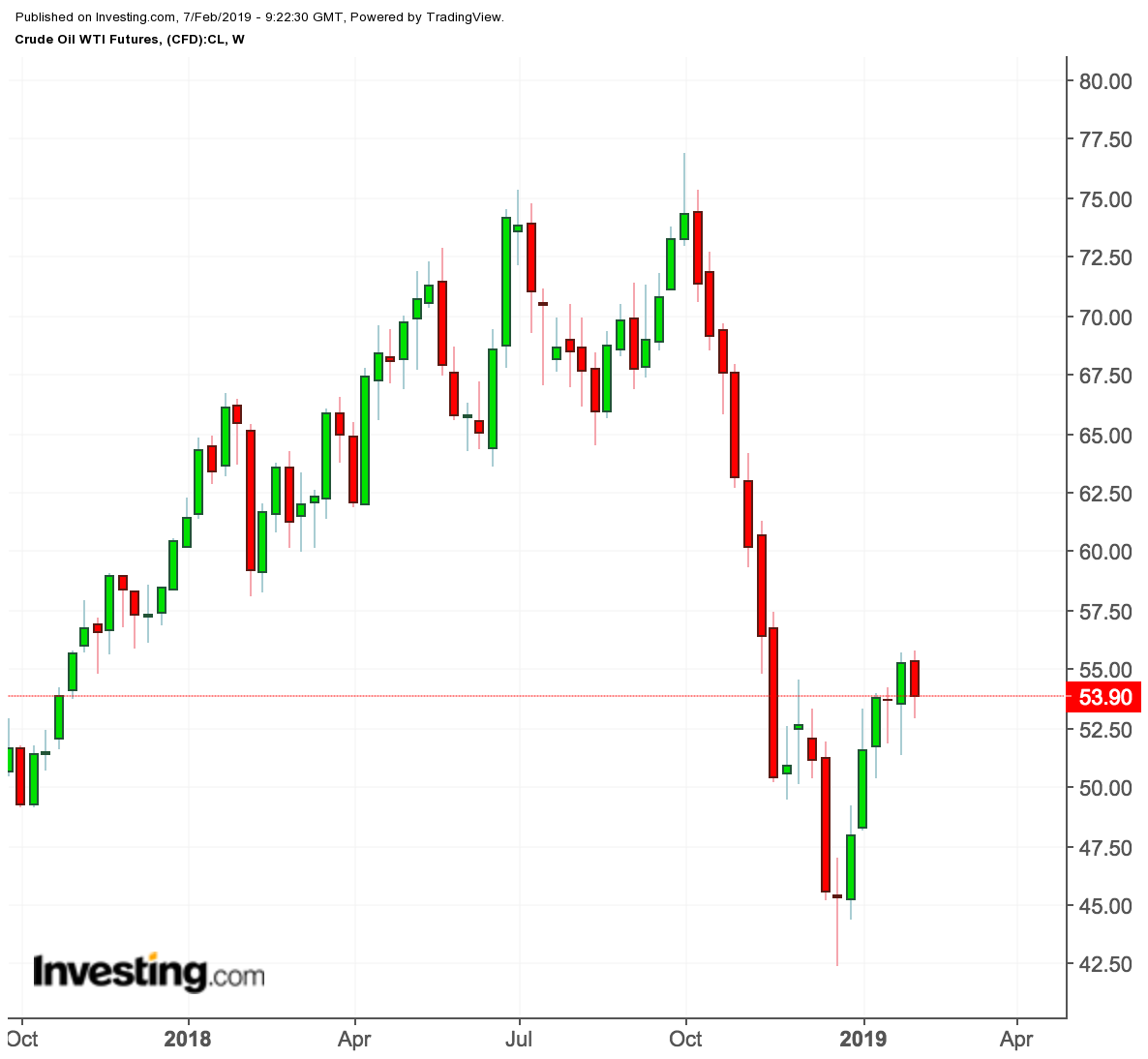Markets may be underestimating the impact of U.S. sanctions on Venezuela’s oil industry. Although oil prices dropped on Wednesday morning, this was in response to the weekly API report that showed an increase in U.S. crude oil and gasoline inventories.

The sanctions have been in place for a week now, yet oil prices have not reacted appreciably yet. And although it had been expected that Venezuela’s oil production would continue to drop in 2019, the near complete stoppage of shipments to the U.S. had not been anticipated.
While the sanctions don't ban U.S. customers from buying Venezuelan oil outright, they prohibit purchasers from transferring payment to the Maduro-controlled government. In reaction, the Maduro regime has banned its country's national oil company, PDVSA, from loading any oil onto U.S.-bound ships unless it receives payment in advance.
U.S. Refiners to Feel Pinch From Mid-February
The initial effects are now starting to hit the industry. Reuters data show that tankers are starting to pile up in the Gulf of Mexico as customers of Venezuela’s oil are unable or unwilling to pre-pay the Maduro regime for crude oil.
As a result, disruption from the sanctions should soon become evident in the U.S. oil and gasoline industry. While those U.S. refiners hit by the sanctions can purchase heavy crude from Canada and the Middle East to make up for the difference, it will cost more and take longer to arrive.
Right now, according to GasBuddy, a gasoline supply overhang is cushioning supplies in the U.S., but this is not expected to last beyond mid-February. Consumers in the U.S. can expect to see prices start to rise at that time.
Lack of U.S. Cash to Hit Venezuelan Production
Some believe that Venezuela will be able to redirect oil previously sold to U.S. customers to China and India. But, without cash from the U.S. or revenue from PDVSA’s refining subsidiary Citgo, the Venezuelan oil industry will be hard pressed to find the funds necessary to keep producing even the 1.11 million barrels per day it produced in January.
According to reports, PDVSA is unable to get oil through its pipelines to export terminals due to a lack of products needed to dilute Venezuela’s heavy oil and mass defections of workers protesting non-payment.
Global energy consulting group WoodMackenzie estimates that Venezuela’s oil production will soon drop below 900,000 barrels per day. Energy-market analysts at Genscape, believe that Venezuela’s production has already dropped by 60,000 barrels per day. Even if China and India are willing to buy Venezuela’s oil, the entire industry may be brought to a standstill in a matter of weeks.
Revolutions are Difficult to Predict
The only other explanation for the lack of movement in oil markets in response to Venezuela could be that traders believe that the end of the Maduro regime is near and that he will either step down or be removed from power shortly. However, historically, it has proven very difficult to accurately predict revolution.
In some cases, it may appear that all the pieces are in place for a change of government or coup, yet the action fails to materialize and the government continues to hang on. On the other hand, sometimes revolutions happen all at once with very few signs. This was the case in Iran in 1979.
It would be a mistake for traders to assume that Maduro’s regime has only a matter of days or a few weeks left.
Venezuelan Production Drop Expands Larger OPEC Cut
Venezuela’s falling production is still just one aspect of a much larger drop in oil production from OPEC countries in 2019.
Data from S&P Global Platts show that OPEC’s January compliance with its production cuts is at about 76%. OPEC production dropped 970,000 barrels per day from December production. 25% of these cuts were involuntary and came from Iran, Venezuela and Libya.
Only Saudi Arabia contributed significant voluntary production cuts. Despite this large drop in production, market attention is focused on Russia, which committed to cutting production along with OPEC, but has yet to deliver substantially on its promise.
